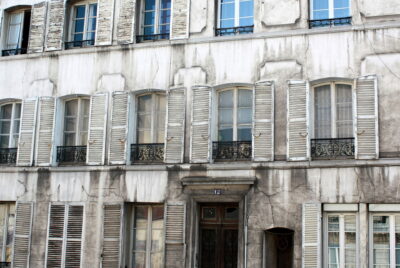Tomb of Michael Madhusudan Dutta at the Lower Circular Road cemetery
Michael Madhusudan Dutt (25 January 1824 – 29 June 1873) was a Bengali poet and playwright. An iconic figure of Bengali literature, he brought the Western form of sonnets to India. He began writing in English, but over time he realized it was futile and went back to Bengali, where he became a stalwart.
Early life & Education
Duke was born in Sagardari, a village in Keshabpur Upazila, Jessore District, Bengal, to an educated, upper middle class Hindu family. Rajnarayan Dutt, his father, was a special pleader in the Sadr Diwani Adalat, and his mom was a housewife Jahnvi Devi. He was a gifted student and was recognized by teachers and professors alike for having a gift for language. Since Dutt’s family was fairly well-off, he got an English education and a tutor at home. Rajnarayan wanted his son to get a government job with this Western education. He studied at Hindu College, Calcutta, the cultural center of the Western-educated Bengali middle class. Among other things, he studied Bengali, Persian, and Sanskrit.

Conversion to Christianity
He became a Christian on 9 February 1843 while he was still in college, partly to get out of an arranged marriage set up by his father. After converting, he took on the name Michael. He had to leave Hindu College after that and went to Bishop’s College in 1844, where he stayed until 1847. While there, he also studied Greek, Latin, and Sanskrit.
His conversion caused a big rift between him and his family, so he stopped receiving money from them. In 1848, he went to Madras and taught at the Madras Male Orphan Asylum School (1848-1852) and then the Madras University High School (1852-1856).
Writing sojourn
During his time in Madras, he wrote for a few newspapers and was associated with a few magazines. He edited the Hindu Chronicle, the Madras Circulator, the Eurasian (later the Eastern Guardian) and General Chronicle, as well as the Madras Spectator from 1848 to 1856. Further, he published two English poetry books — The Captive Ladie (based on a friend’s mother) and Visions of the Past — while living in the city under the pseudonym of ‘Timothy Penpoem’.
After moving to Kolkata, Dutt worked first at the police court as a clerk, then as an interpreter, before contributing to several journals. Dutt realized there weren’t a lot of good plays in Bengali while translating Ratnavali (1858) by Ramnarayan Tarkaratna. In 1858, he got associated with Kolkata’s Belgachhiya Theatre and wrote the first original Bengali play, Sharmishtha, based on the Mahabharata characters Devayani and Yayati. He tried blank verse for the first time.
Dutt, in his next two plays Ekei Ki Bale Shabhyata and Buda Saliker Ghade Ron, played a satirical play about Young Bengal’s immoral turn from Western education and the immortality present in the conservative Hindu society. The Greek myth inspired him to write Padmavati (1860). Finally, Bengali literature wasn’t bound by rhymed verses anymore. Then he did Tilottamasambhav in blank verse.
In 1861, Dutt wrote the first Bengali epic poem, Meghnadbadh Kabya, which was inspired by Milton’s Paradise Lost but based on the Ramayana. Rabindranath Tagore was born in the same year. Ravana was a hero in this heroic-tragic epic in nine cantos. It earned him a permanent place in Bengali literature.Also, he wrote poems that gave voice to women in love or hurt, speaking about their desires openly, something new in Bengali literature. Krsnakumari (1861), a tragedy based on a Rajput story; Vrajangana (1861); and Virabgana (1862) were written along these lines. Around the same time he translated Nildarpan by Dinabandhu Mitra into English.
Marriage and controversy
Dutta refused to get married to his father’s choice. He didn’t respect that tradition and wanted to break free from caste-based marriages. Due to his knowledge of the European tradition, he chose marriages by mutual consent (or love marriages).
While in Madras, he married Indo-Scottish-Britton Rebecca Thompson McTavish, a 17-year-old resident of the Madras Female Orphan Asylum, on 31 July 1848. When the marriage was registered in the baptismal register, Dutta took the name Michael. They had four kids together. Dutta wrote to Bysack in December 1855:
Yes, dearest Gour, I have a fine English wife and four children.
After his father died (in 1855), Dutta returned to Calcutta, abandoning his wife and four kids in Madras. His divorce from Rebecca or remarriage aren’t in the records. Emelia Henrietta Sophie White, the daughter of a colleague at the Madras Male Orphan Asylum, joined him there in 1858. They were together until his death.
Leander Paes is a direct descendant of Dutt, his great-great-grandfather on his mother’s side.
Award and Legacy
For 15 years after his death, Dutta was largely ignored. A tomb was erected at his gravesite as a belated tribute. Michael Madhusudhan is a 1950 Bengali-language drama film directed by Modhu Bose, starring Utpal Dutt.
Namita Gokhale wrote a play, Betrayed by Hope, about Madhusudhan in 2021, based on letters he wrote to friends and other authors.
Immortality
On 29 June 1873, Dutta died in Calcutta General Hospital. Three days before he died, he recited a passage from Shakespeare’s Macbeth to his good friend Bysack, to express his deepest conviction about life:
…out, out, brief candle!
Life’s but a walking shadow; a poor player,
That struts and frets his hour upon the stage,
And then is heard no more; it is a tale Told by an idiot,
full of sound and fury, Signifying nothing.







